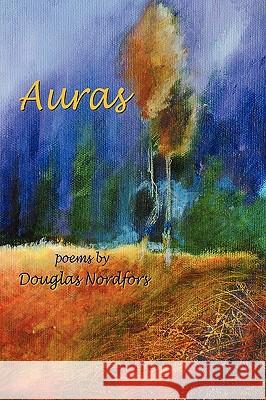Auras » książka
Auras
ISBN-13: 9780911051407 / Angielski / Miękka / 2008 / 88 str.
Malcolm Cowley called childhood the "landscape by which all others are reckoned and condemned." This provocative, mythic, haunted territory is the turf of Douglas Nordfors' Auras, a collection charged with Wordsworthian wandering/wondering and Blakean outrage against "mind-forg'd manacles" harmful to the innocent, impoverished, or vulnerable among us. These poems offer profound empathy with children, natural phenomena, and animal presences; they marry the pre-Lapsarian, primal urgency of early experiences with an extraordinarily generous adult vision that compels and taunts us with the depth of its cultural, literary, historic, and personal intensity. Attentive to minute, intuitive particulars, the poems are also capable of a vision of the world that is expansive, joyful, and indicting: "And I remembered as a boy countless / trips to the zoo / the orange tiger and the yellow lion / and the orange orangutan and the gray monkey / the colors of dawn, / in the sense that I believed / my mind was for articulating / how I hadn't evolved beyond them- / their wordless words were my words, if / you see what I mean." With rare, discerning humility, these poems startle, unsettle, and move us: "Shop windows seen / through dim natural light in February are / immaterial blessings. Turning the streetlights / on, though the moon hasn't materialized, / isn't the answer. Yes is the answer, / yes to the gray light, the sun's undiluted / offspring, the rootless child with no delusions that never fears." I am grateful for the acumen, shadowed humor, deft craft, and utter, inimitable ultra-humanity of these poems.
Lisa Russ Spaar, author of Blue Venus, Satin Cash,
and editor of All That Mighty Heart: London Poems
"Out of the past" comes a "new science" of the pastoral: phrases juxtaposed from the first and last lines of Auras, Douglas Nordfors' collection of poems. The observation is so exact, the language so elegant yet colloquial, the pathways taken along a world of riverbanks and forests so comprehensive that the search for the "forever natural" here seems natural indeed. This is a book about searching for love, for literary truths, for knowledge, even though that "knowing can't be owned." And in the end we are gifted with insights and revelations from a poet so immersed in his art that he has become the "carving removed from the wood."
Tom O'Grady, author of The Farmville Elegies,
In the Room of the Just Born, and editor of
The Hampden-Sydney Poetry Review











